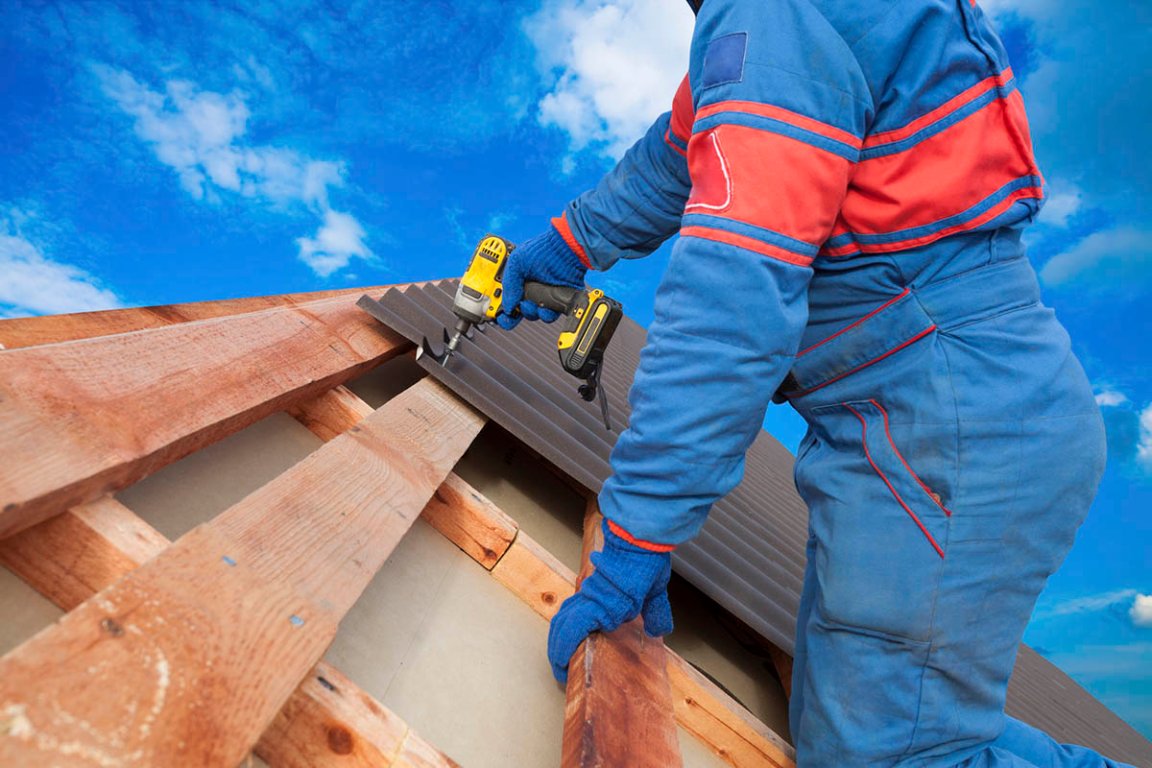We may earn revenue from the products available on this page and participate in affiliate programs. Learn More ›
Homeowners rarely step foot on their own roofs. When roofing issues come up, most homeowners just hire out the job to a pro. The reality is that roofing jobs don’t have to be as intimidating as they’re made out to be. Minor repairs are well within the capability of most DIYers once they’re prepared and have the right tools.
Preparation is key, so knowing what roofing tools you’ll need to make a repair is the first step. Aside from a ladder, a proper roofing toolkit requires some specific gear. Attempting to repair your roof without preparing properly can be miserable or even dangerous. On the other hand, being well prepared and equipped with the right roofing tools will keep you at the top of your game—and roof.
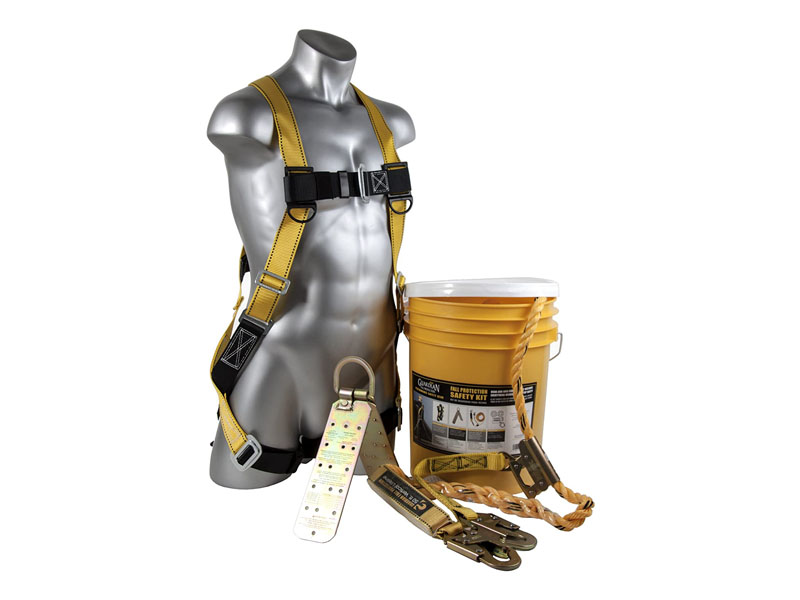
1. Fall Protection
Staying safe needs to be a priority if you’re venturing out onto your roof. Even one-story, low-pitched roofs can be dangerous to work on. Having a lightweight harness that won’t inhibit your movement while also allowing you to strap your nail bags on over top is invaluable.
Editors’ Pick: Qualcraft Guardian Fall Protection kit (available on Amazon) has everything you need to get out on a roof safely and get the job done.
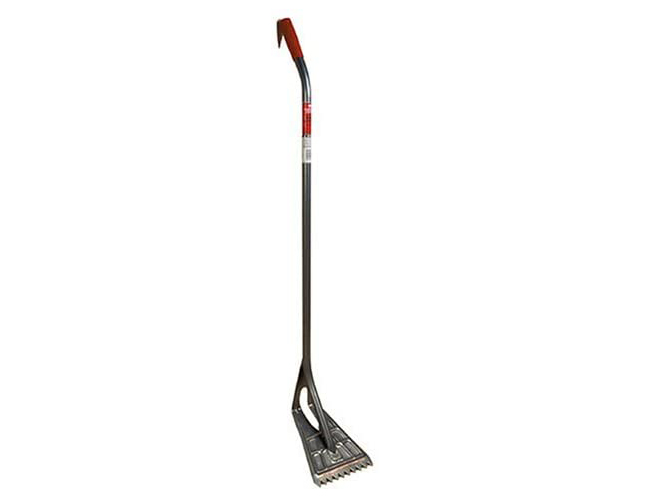
2. Shingle Remover
Ripping off the existing shingles on a roof is no small task, and it’s better tackled with some leverage. Shingle removers slide between shingles and pry them up, freeing them from the roof sheathing (the plywood layer that the shingles are nailed to). These removal tools have long handles that allow you to remain standing while applying plenty of leverage. In short, they make quick work of stripping old roofs.
Editors’ Pick: The Qualcraft 54-inch Shingle Removal Shovel (available on Amazon) is a lightweight and sturdy option for taking a roof down to plywood quickly and safely.
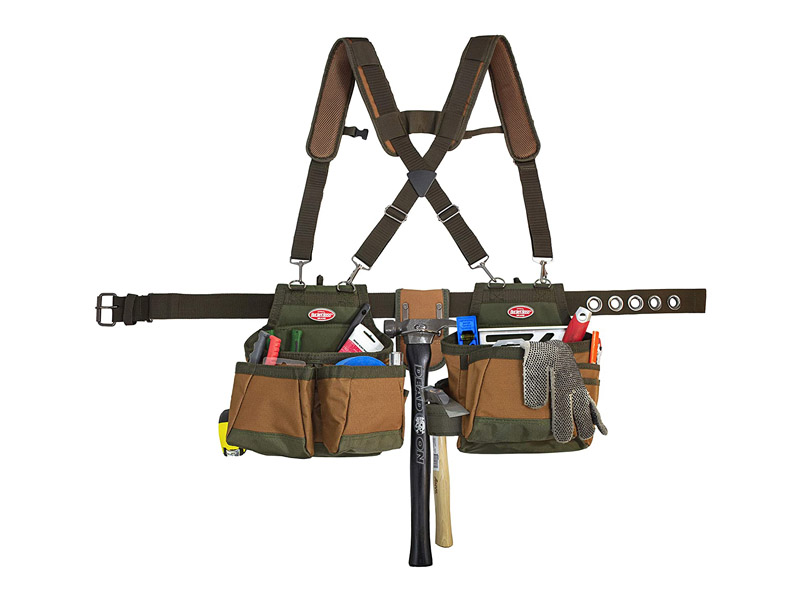
3. Nail Bags or Tool Belt
Climbing up and down a ladder for tools all day is neither convenient nor practical. And for safety’s sake, leaving tools sitting on a roofing surface is also a bad idea. Carpenter’s nail bags, also known as tool belts, offer a convenient place to hold a few hand tools and a pouch of roofing nails. These bags increase efficiency, safety, and speed, and reduce fatigue.
Purchase bags that sit on your hips with a hammer loop in the rear. Roofing requires a lot of bending over, and bags that sit on your lap will be uncomfortable to retrieve nails and tools from.
Editors’ Pick: Lightweight nail bags like this set from BucketBoss (available on Amazon) are perfect for roofing jobs. It has plenty of onboard storage without weighing the user down too much.
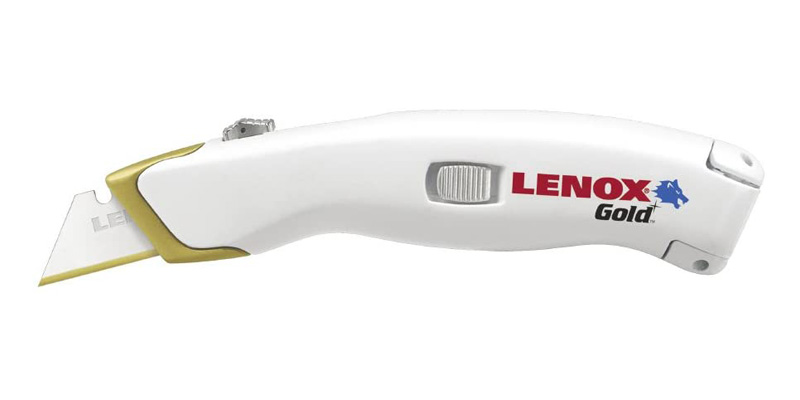
4. Retractable Utility Knife
Having a retractable utility knife is key to a successful roofing repair or installation. Retractable knives allow you to open and close them with one hand, which helps promote safety by allowing you to steady yourself with your free hand when in off-balance positions. Also, some models get extra points for having a quick-change blade release button to simplify replacing dull blades.
Editors’ Pick: Lenox Gold quick-change utility knives (available on Amazon) are ergonomically designed to increase leverage and comfort while still being slim enough to hide away in a carpenter’s nail bags.
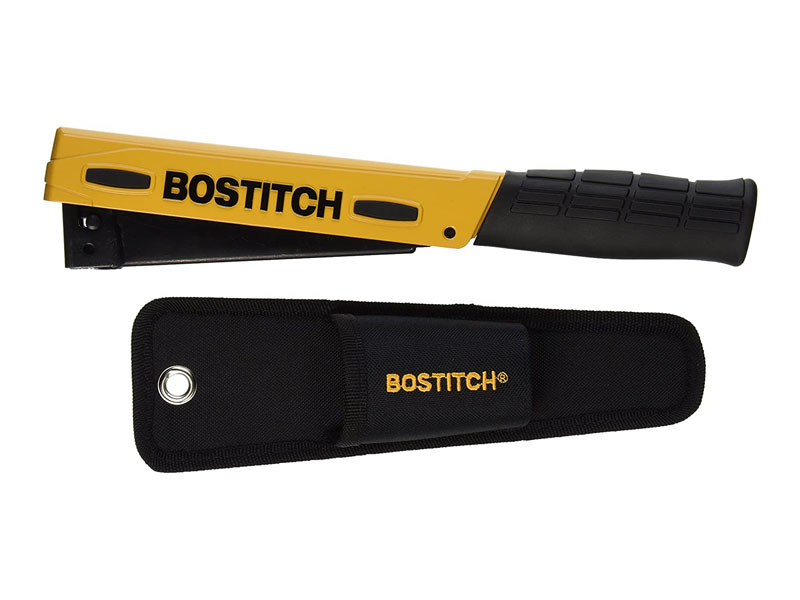
5. Hammer Tacker
A properly installed roofing system starts with felt paper being rolled out across the sheathing. That paper needs to be stapled in place before you can install shingles, and a hammer tacker is the fastest way to slap some staples home. Swung overhand like a hammer, the hammer tacker snaps a staple into the sheathing quickly, allowing you to install a course of felt paper in no time at all.
Purchase a streamlined model without a broad, heavy head. Lightweight, streamlined models fit better in nail bags and weigh them down far less.
Editors’ Pick: The BOSTITCH Hammer Stapler (available on Amazon) shoots a variety of staple sizes and comes with a storage pouch.
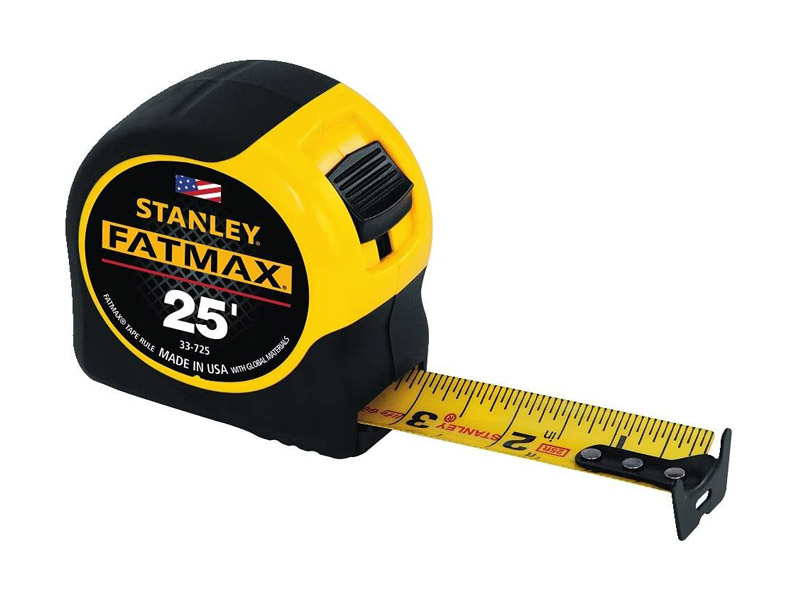
6. Tape Measure
The importance of a durable tape measure can’t be overstated, particularly on a roofing job. You’ll want to look for a model with a long stand-out (the length a tape measure can be extended unsupported before snapping) and a large hook for grabbing onto surfaces hands-free. You’ll use it to lay out straight, consistent courses of shingles with even reveals. A 25-foot model will work for most roofing jobs without being too big or heavy in a nail bag.
Editors’ Pick: The 25-foot Stanley FatMax (available on Amazon) is a job site favorite among all trades.
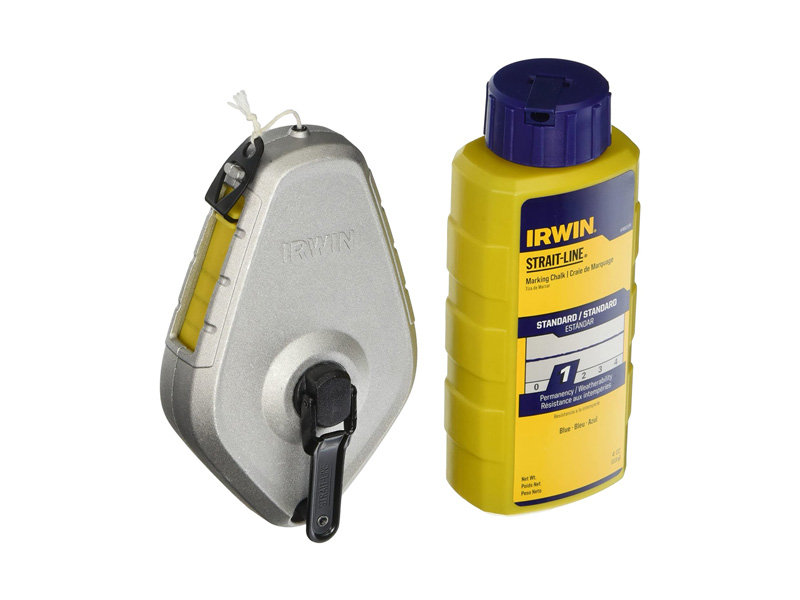
7. Chalk Box (or Chalk Line)
The key to consistent courses of shingles is a proper layout, and a chalk box is the most reliable way to achieve that. By snapping chalk lines between measurements on either side of the roof, you will have a clearly visible guideline to follow and a blueprint for a perfect roofing job.
Editors’ Pick: The Irwin Strait-Line Chalk Line (available on Amazon) is a lightweight and reliable model that tucks away nicely in a pouch. It holds enough chalk to get through a roofing job without being too big or cumbersome.
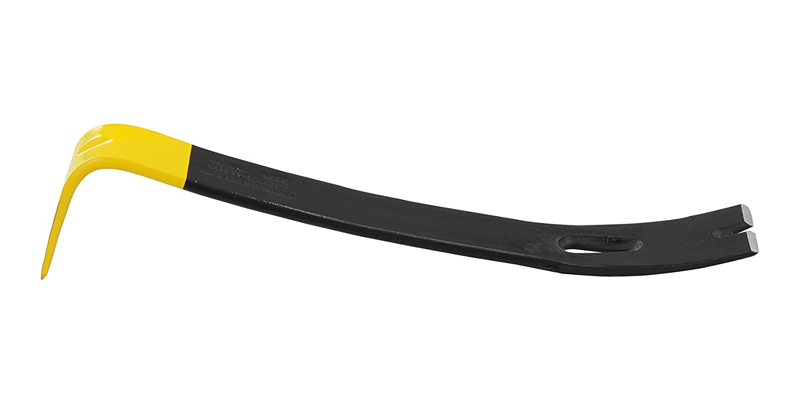
8. Pry Bar
Keeping a trusty pry bar handy while you’re on the roof can be a timesaver. Not everything that needs to be pried up warrants climbing down the ladder to get the shingle remover. Sometimes all you need is a little bit of leverage to get the job done. Sturdy models may be heavy, but this is one area where sacrificing some weight for strength is totally worth it.
Editors’ Pick: The Stanley Wonderbar (available on Amazon) is an age-old fixture on job sites, and it’s small enough to be carried around on a roof all day.
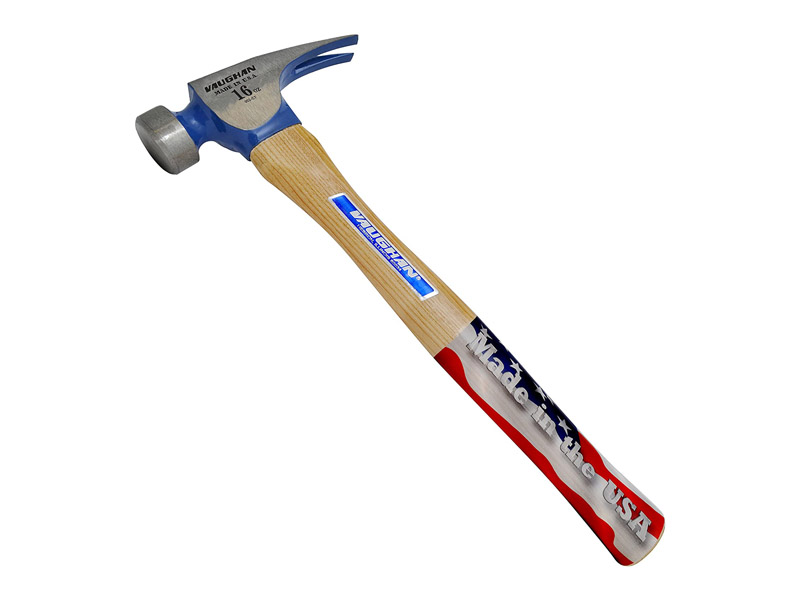
9. Hammer
A sturdy hammer is another necessity for tackling roofing jobs. Hammers are helpful for nailing off drip edges, driving roofing nails, and prying things up or apart. They come in different weights and sizes, but a do-all 16-ounce model is plenty of hammer for driving roofing nails while still being light enough to carry around.
Steel-handled hammers tend to be heavy and lack vibration-absorption, wreaking havoc on a roofer’s swinging-arm after a long day. Wood and fiberglass models are lightweight and will eat up some of that shock before it makes its way into your hand and arm.
Editors’ Pick: Don’t let the name fool you: The Vaughan & Bushnell 16-ounce finish hammer (available on Amazon) has a wide striking surface, perfectly suited for roofing jobs.
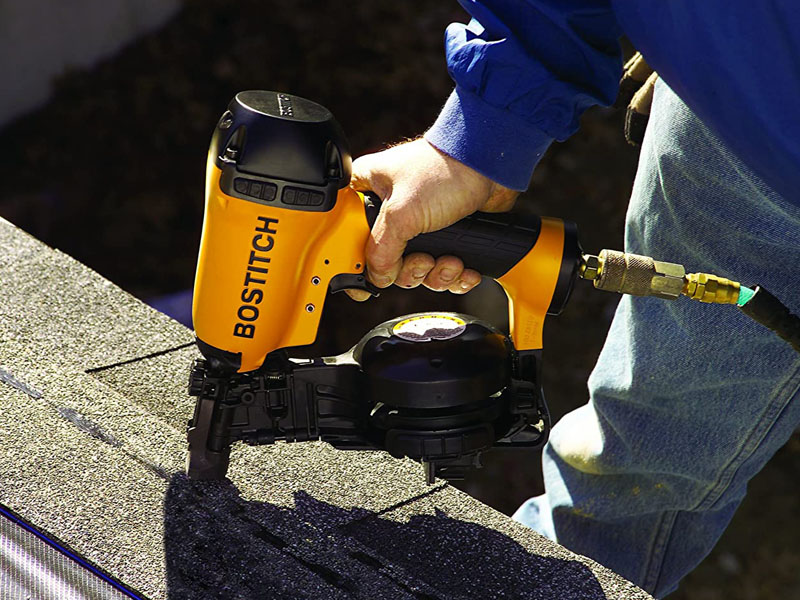
10. Roofing Nailer
If speed and convenience are important to you, a quality nail gun may be the right roofing tool for you. These air-powered tools make quick work of nailing down a course of shingles. On two-man jobs, they’re almost essential for optimal workflow. One roofer can lay down shingles while the other follows behind with the nailer to nail them off. This flow can drastically reduce the amount of time a roofing job takes.
Editors’ Picks: The BOSTITCH Coil Roofing Nailer (available on Amazon) is a roofing job site favorite, thanks to its reliability.
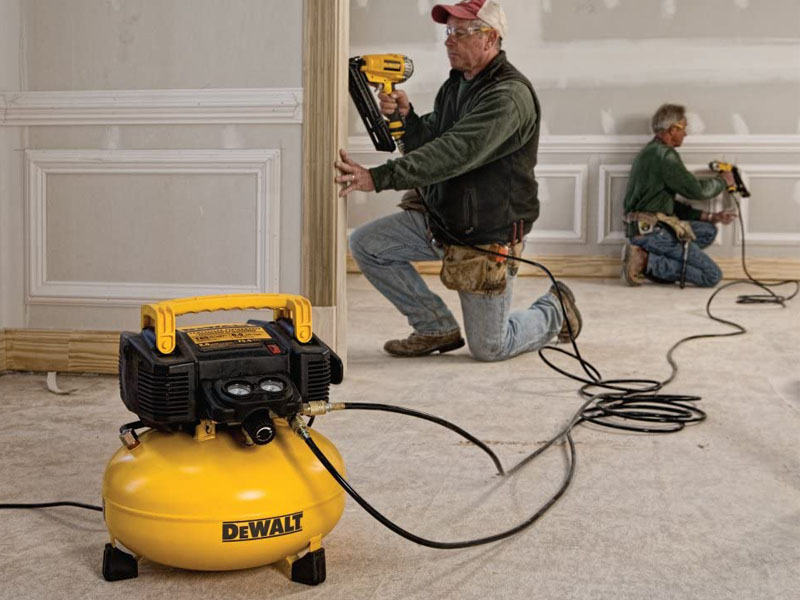
11. Air Compressor
If you’re running a roofing nailer, you’re going to need some air. Mid-sized compressors are lightweight and don’t draw too much power—which is important when they’re on the end of a long extension cord. Large models may hold more volume, but they’re more likely to trip breakers when plugged into an extension cord.
Purchase extra hose and proceed with caution. Bringing a compressor onto a roof is a recipe for disaster. The vibration can cause them to walk right off the edge of the roof, possibly taking someone with them, falling onto someone below, or causing damage to the home.
Editors’ Pick: This DEWALT 6 Gallon Air Compressor (available on Amazon) has enough volume to run one nailer consistently, but can hook up to two nailers if needed.

